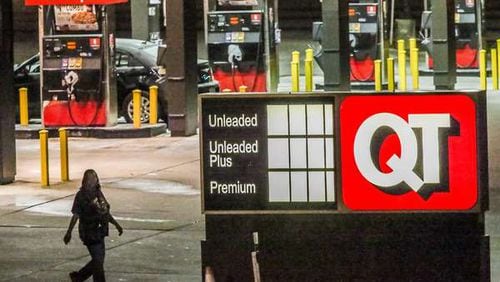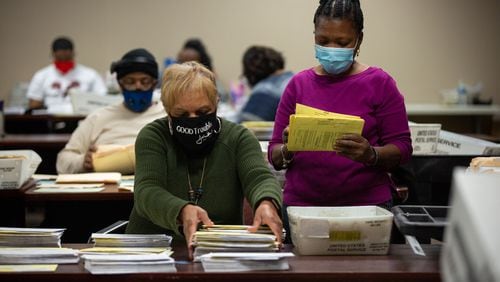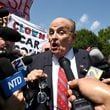Finance and economics professor Mark J. Perry has a term for legislation like the executive order Gov. Nathan Deal signed Monday to keep gas stations from significantly hiking fuel prices amid temporary shortages: "guaranteed shortage and maximum suffering laws."
Credit: Jennifer Brett
Credit: Jennifer Brett
Perry, a scholar at the conservative American Enterprise Institute, professor of economics and finance at the University of Michigan's Flint campus and creator of the economics blog Carpe Diem, wrote a column about the topic in response to similar legislation passed in 2012 by New Jersey Gov. Chris Christie:
If the goals were to: a) extend the gasoline shortages in New Jersey for as long as possible, b) make the lines at the pump as long as possible, c) discourage as many gasoline stations as possible from re-opening, and d) maximize the suffering of the citizens of New Jersey, there couldn't be a more effective method of achieving all four of those outcomes than to vigorously enforce the state's " anti price gouging " guaranteed shortage and maximum suffering laws." (note: the strike-thru and bold type are Perry's)
Deal ruled in response to reports of "substantially" increased gas prices in some markets, AJC political reporter Greg Bluestein reports . The law allows gas stations to only hike prices based on the increased cost of transporting fuel or the cost of the gas, not on the increased demand for the fuel.
Christie, who like Deal is a Republican, ruled amid similar circumstances. Perry said that was the wrong move, lamenting, "Christie and his generation of politicians and bureaucrats graduated from high school years ago and missed that basic training in economic literacy, especially the section on the 'economics of price controls.'"
Closer to home and more timely, libertarian pundit Neal Boortz weighed in specifically about Deal's action:
Rafi Mohammed, a pricing strategy consultant and author of "The 1% Windfall: How Successful Companies Use Price to Profit and Grow," addressed the topic in more general terms in a 2013 Harvard Business Review piece titled "The Problem with Price Gouging Laws."
His take: such legislation encourages hoarding and discourages businesses from boosting supplies.
This lengthy 2001 Cato Institute piece titled "The Problems of Price Controls" also explores the topic, in very broad terms.
In 2004, then Florida Gov. Charlie Crist lambasted merchants for raising prices after Hurricane Charley. The USA Today piece about it, titled "After the storm come the vultures," detailed the legal and legislative remedies Crist embraced amid complaints of price gouging.
"These people were victims once already, and now find themselves victimized again," Crist - then a Republican and now an Independent - said then. "It's horrific."
Legislative action following disaster-related price hikes aren't rare.
Former Massachussetts Gov. Deval Patrick "ordered the state's Division of Standards to closely monitor bottled water prices" after a pipeline break temporarily left the Boston area high and dry, Boston Globe columnist Jeff Jacoby wrote in 2010. He decried the measure:
"No sooner does some calamity trigger an urgent need for basic resources than self-righteous voices are raised to denounce the amazingly efficient system that stimulates suppliers to speed those resources to the people who need them. That system is the free market's price mechanism — the fluctuation of prices because of changes in supply and demand."
The title of Jacoby's column: "What's Wrong With Price Gouging?"
Price controls aren't new, either. This piece by Rutgers University economics professor Hugh Rockoff in the Library of Economics and Liberty notes that "The Old Testament prohibited interest on loans to fellow Israelites."
"The study of price controls teaches important lessons about free competitive markets," Rockoff writes. "By examining cases in which controls have prevented the price mechanism from working, we gain a better appreciation of its usual elegance and efficiency. This does not mean that there are no circumstances in which temporary controls may be effective. But a fair reading of economic history shows just how rare those circumstances are."








